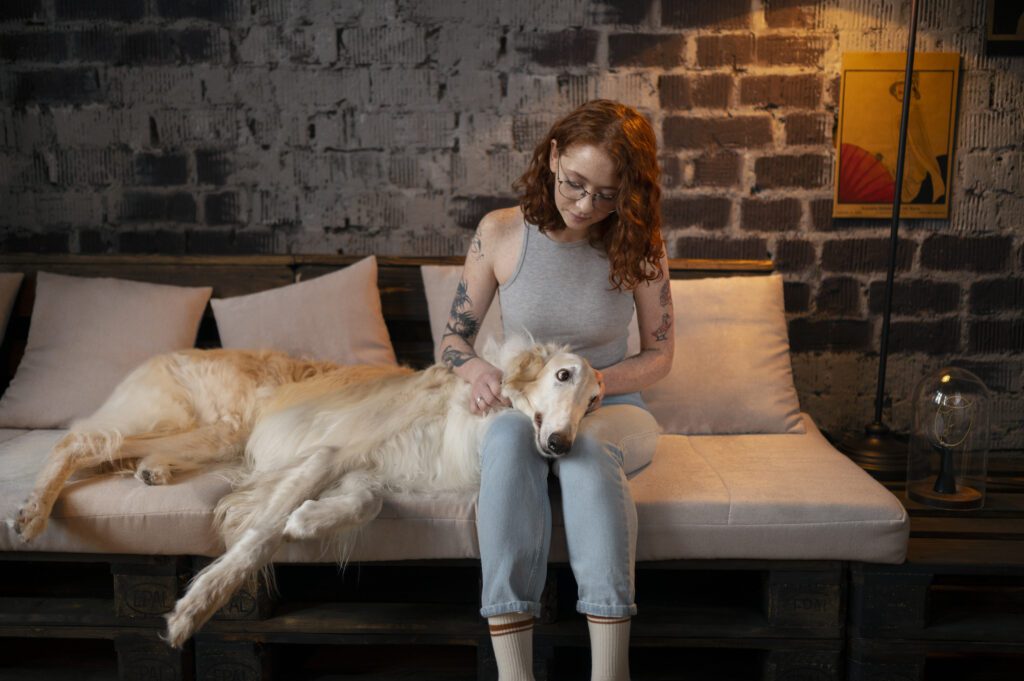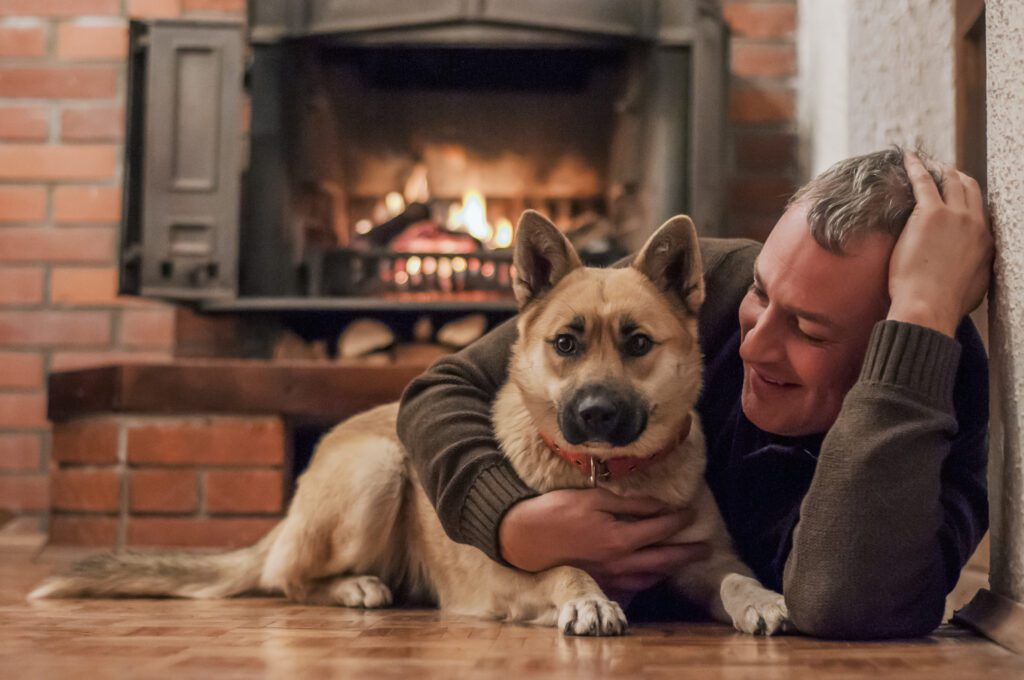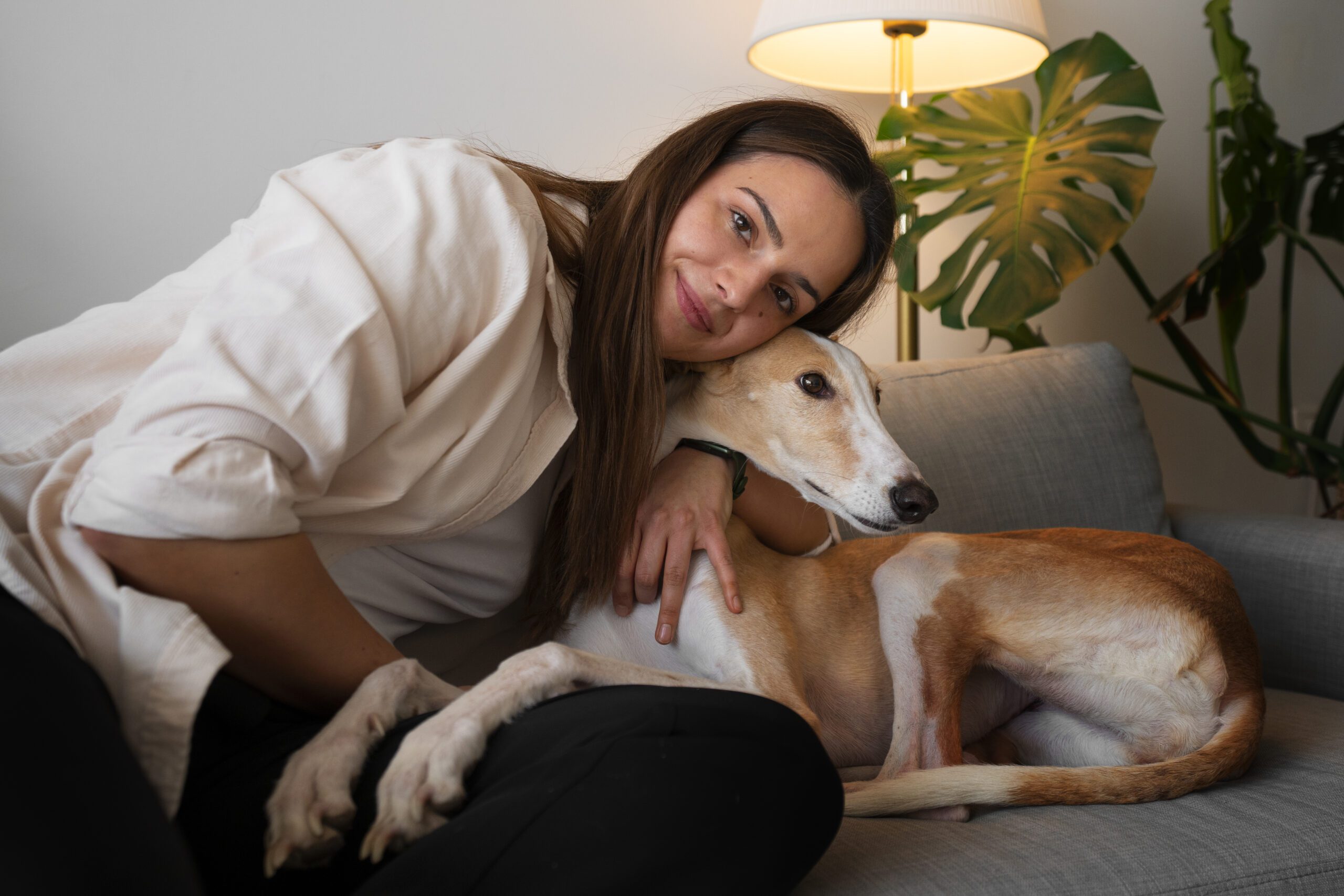If you’ve ever been jolted awake by your dog whining in the middle of the night, you know how frustrating—and worrying—it can be. You might lie there thinking, “Why Does a Dog Cry at Night? Are they in pain? Do they need something?” The truth is, dogs cry at night for all kinds of reasons, and it’s not always just for attention.
Just like people, dogs have emotions, fears, and moments of discomfort. Crying is their way of telling you that something doesn’t feel right. Understanding why it happens is the first step to helping them feel calm and safe again.
1. Dogs Communicate Through Sounds
Since dogs can’t talk, they rely on body language and sounds—like barking, whining, or howling—to express how they feel. When your dog cries at night, they’re trying to say something’s bothering them.
It could be emotional, physical, or even something in their environment. Some dogs cry because they’re anxious or lonely, while others might be uncomfortable or in pain. It’s their version of saying, “Hey, I need help.”
Don’t ignore it—your dog isn’t trying to be difficult. They’re just trying to tell you something’s wrong.

2. Separation Anxiety: A Common Reason
One of the main reasons dogs cry at night is separation anxiety. Dogs are pack animals, and they get attached to their humans. When they’re alone, they might feel scared or insecure.
If your dog cries, paces, or howls when they’re left in another room or in a crate, separation anxiety might be the cause. This happens a lot with new dogs or those who’ve recently moved or had big life changes.
What to do:
- Let them sleep near you at first. Slowly increase distance as they get comfortable.
- Play soft background noise or white noise to help them feel less alone.
- Don’t rush to comfort them while they’re crying. Wait for a calm moment to give attention so they learn that quiet behavior gets rewarded.
3. Puppies Cry Because They Miss Their Family
If your dog is still a puppy, nighttime crying is almost always about missing their mom and littermates. Imagine being taken from your warm, noisy family and placed in a strange new home—it’s scary.
How to comfort a puppy:
- Keep their crate close to your bed so they can hear and smell you.
- Give them a soft toy or blanket that smells like their litter.
- Try soothing sounds like lullabies or heartbeat noises.
- Never scold them for crying—it just makes them more anxious.
Most puppies settle down within a week or two once they feel safe.
4. Your Dog Might Be Lonely or Bored
Dogs need attention and stimulation. If they spend most of the day alone, they might feel lonely or restless at night.
When dogs don’t get enough play or exercise, they may cry or whine just to burn off pent-up energy.
Easy fixes:
- Take them for a good walk or play session before bedtime.
- Give them puzzle toys or chew toys to keep their mind busy.
- Spend quality time with them in the evening.
A tired, happy dog is usually a quiet one.

5. They Might Need a Bathroom Break
Sometimes the reason is simple—they need to go outside. Puppies and older dogs often have weaker bladder control, so they might whine to let you know it’s time for a bathroom break.
If your dog cries and then goes to the door or sniffs around, that’s your sign. Stick to a consistent feeding and potty schedule to help prevent this.
6. Fear or Anxiety
Some dogs get scared by noises, lights, or shadows at night. Thunder, fireworks, or even distant cars can make them uneasy. Older dogs may also cry more at night if their eyesight or hearing is fading.
What you can do:
- Set up a quiet, cozy sleeping area away from windows.
- Leave a dim night light on.
- Try calming sprays, pheromone diffusers, or a weighted blanket.
- Stay calm and reassuring, but don’t over-comfort. Your calm energy helps them relax.
7. Pain or Health Issues
Dogs might cry at night because they’re hurting or not feeling well. Since they can’t tell you directly, whining is how they ask for help.
Possible causes include:
- Arthritis or joint pain (especially in older dogs)
- Stomach problems like gas or indigestion
- Urinary infections
- Injuries or internal pain
- Canine dementia in senior dogs
If the crying is new, constant, or paired with other symptoms like limping or not eating, it’s best to see a vet.

8. Changes in Routine or Environment
Dogs love routine. A new house, schedule change, or even a new family member can make them stressed. That stress can lead to nighttime crying.
Keep things as consistent as possible—same feeding times, walk times, and bedtime routine. Familiar toys and smells also help them adjust.
9. Attention-Seeking Behavior
Once a dog learns that crying gets your attention, they might keep doing it—even if they’re fine. It’s not manipulation—it’s learned behavior.
Try not to respond right away when they whine just for attention. Wait for them to calm down, then give praise or affection. They’ll learn that quiet behavior works better.
10. How to Help Your Dog Stop Crying at Night
Here’s a quick recap:
- Stick to a bedtime routine so your dog feels secure.
- Make sure they get enough exercise during the day.
- Set up a comfortable sleeping space.
- Reward calm behavior instead of crying.
- Try calming aids like soothing sounds or pheromone diffusers.
- Keep their environment quiet, cozy, and consistent.
- Visit the vet if the crying doesn’t stop.

Final Thoughts
When your dog cries at night, they’re not trying to annoy you—they’re trying to tell you they need something. Whether it’s comfort, company, or medical help, figuring out the cause is key.
With patience, love, and a steady routine, your dog will start to feel safe—and those long nights will turn into peaceful, tail-wagging mornings.
FAQs
1. Why does my dog cry at night even when I’m home?
They might still feel anxious or want to be closer to you.
2. Should I ignore my dog when it cries at night?
Check first to make sure nothing’s wrong. Once you know they’re fine, ignore attention-seeking whining so it doesn’t become a habit.
3. Can dogs cry from loneliness?
Yes. Dogs are social and can feel lonely or sad when left alone too long.
4. What can I give my dog to calm them at night?
Try calming treats, pheromone sprays, or soft music. Ask your vet before giving any supplements.
5. How long will my puppy cry at night?
Usually about one to two weeks—once they adjust to their new home and routine.
Also read related article on why dogs run away.
